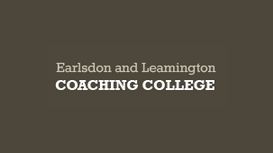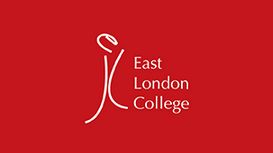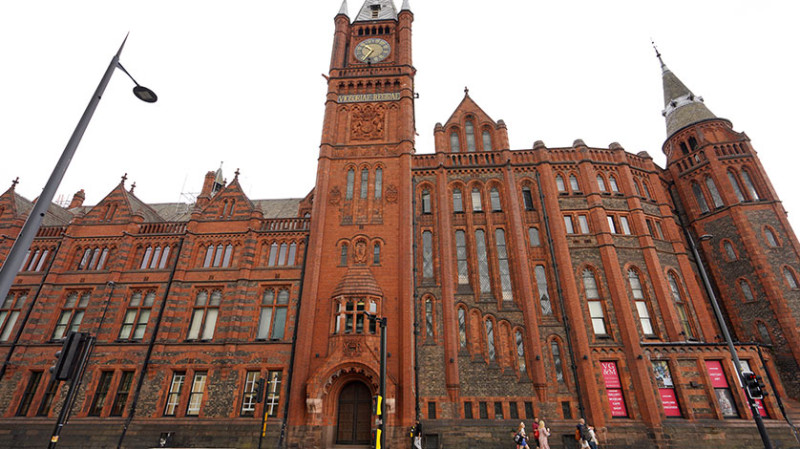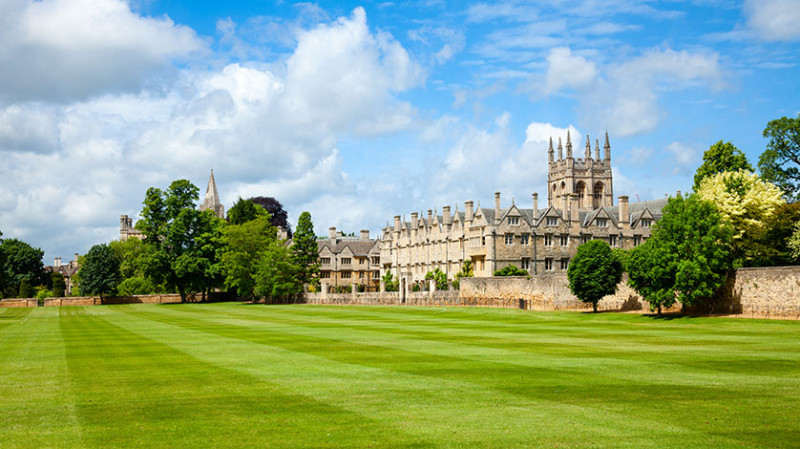Partner's ads
Colleges in the UK

The Latimer Arts College
Kettering, Northamptonshire, East Midlands, NN15 6SW
The Latimer Arts College is a thriving, high performing school and I am privileged to be Principal. Those in our learning community love contributing to our vibrant and exciting college life,

The Cardiff Academy
What Cardiff Academy stands for are the old-fashioned values of honesty, integrity, value-for-money, success through hard work, teaching professionalism and a continuing duty of care to each student

Ratcliffe College Nursery School
Leicester, Leicestershire, East Midlands, LE7 4SG
Founder Antonio Rosmini was renowned as an educational innovator and that spirit has propelled the College forward ever since. The College ‘Victorian Gothic' buildings were designed by Augustus

Blackburn College
Blackburn, Lancashire, North West England, BB2 1LH
Our learners benefit from an outstanding team of teaching and industry experts and can enjoy a campus which boasts £65 million facilities; including our brand new Sports facility, Regional Automotive

Chaucer Conferences
Canterbury, Kent, South East England, CT2 7LJ
Our first site, Chaucer College, is an award-winning purpose-built college on the University of Kent campus in Canterbury, welcoming Japanese university students. Our second site, Kingsgate (near

Lisc Independent Tutorial College
Surbiton, South West London, London, KT6 7AE
As an independent tutorial college and a study centre, awarded the 'exceeding expectations' outstanding award in its last two ISI inspections, LISC is exceptional in many ways. It offers both

Pinnacle International College
Stamford Hill, North London, London, N15 4BN
Choosing where you want to study will be one of the most important decisions you will make in your life. Importantly, the friends and contacts you make during your College days are likely to remain

British Universities & Colleges Sport
London Bridge, South East London, London, SE1 0QX
British Universities & Colleges Sport (BUCS) is the national governing body for Higher Education (HE) sport in the UK, a membership organisation, and a company limited by guarantee with charitable

Melton College, York
York, North Yorkshire, Yorkshire and the Humber, YO24 4DH
For nearly 50 years students have come to Melton College to learn English in York. The College is in a residential part of the City, away from the crowded shopping area, it is the only IELTS Centre in

St. Patrick's College
Stratford, East London, London, E15 1AJ
Develop yourself - and a rewarding career - with a course focused on you and your needs. We will ensure you gain the applied knowledge and specialised skills that top employers want. Our courses give

Earlsdon Coaching College
Coventry, West Midlands, West Midlands, CV1 2NE
Earlsdon and Leamington Coaching College is a small, independent college with centres in Coventry and Leamington. Students aged 6 to 18 can get the most from their education with tuition, coaching and

Brooklands College
Staines, Surrey, South East England, TW15
Welcome to Brooklands College a Further Education college based on two campuses, one in leafy Weybridge and the other in Ashford, close to Heathrow Airport. We are proud to be one of Surrey's largest

Moat Community College
Leicester, Leicestershire, East Midlands, LE2 0TU
We are just in the process of moving to our new website at the moment as part of the Building Schools for the Future project. Use this site to find useful information on all aspects of College life

Islamic College For Advanced Studies
Kilburn, North West London, London, NW6 5RA
The Islamic College represents the fusion of the classical with the modern. It was founded in 1998 to promote a new approach to the study of Islam and Muslims by providing a unique 'insider's

East London College
Ilford, East London, London, IG1 4TG
We provide excellent Education and Training for private and corporate students at all levels. With our supportive learning environment and excellent pass rates we are sure you will have a great
Can't find your business?
Adding a business to Colleges-UK.co.uk is free.Frequently Asked Questions and Answers
- Click here to navigate to the Login page.
- If you haven't yet registered, click here to navigate to the Registration page.
- Fill all required fields.
- After you have logged in, click on "Add Business.
- After you have clicked on "Add Business", you will be redirected to another page.
- You can now fill in the details for this Business.
- Click on the "Create" button.
- Your listing will now be "pending approval".
- One of our Administrators will review your listing and decide whether to Approve or Reject it.
- Priority listing positioning for city, county, in the search results, and our home page.
- A website link on the listing page.
- Can add services with links included.
- Have access to all submitted free quotes from our visitors.
- Increase leads that you can follow up and generate sales from.
- Increase your online presence which, these days, is an indispensable commodity.
- Allow the thousands of potential customers who use the directory each month to find you.
Many students from abroad, when visiting a foreign country for an exchange year or to simply enroll at a Bachelor or Masters degree course, or another type of an educational course, often find it difficult to figure out the educational system of the country hosting them as students. And this is totally normal and understandable. At the end of the day, the majority of the countries in the world follow their own educational system that may be similar to other countries in the world, but not necessarily exactly the same.
This is a common case when it comes to the term “college” in the UK. When students from the USA and many other countries in the world are asked to define what college is, they will quickly explain to you that college is the same thing as university. However, is it the same in the UK? Did you know that college in the UK is something different from university? Today we are about to explain the basic differences between a college and an university in the UK, so stay tuned if you are interested in this topic.
The Difference Between University and College in UK
Confusion about a foreign educational system is a common thing students from abroad face and they may feel intimidated by that. However, there is no place for worries, because things are often easy to explain and get used to. This applied for the difference between a college and a university in the UK. In many countries both terms are pretty much interchangeable and mean the same thing. Other countries simply never use the term college and they have universities only. However, when it comes to the UK, there are both a college and a university as a part of the educational system and they mean something different. Well, if you are an exchange student in the UK or going there to study for a degree, you will soon find out that the country has a pretty unique educational system and the college is not the only thing different here.
Before explaining more in-depth the difference between a university and a college in the UK, let’s get some basic understanding about the educational system in the country in general, about a university, and about a college. It is a very good and important beginning if you are interested in studying in the UK and getting a degree, because there are different options and opportunities and you can choose the one that best suits and meets your requirements and needs as a student. Both a university and a college can help you develop in different ways and achieve different goals. Therefore, it is important to understand the difference between a college and a university and make the right decision, depending on your plans for the future.
In general, the UK educational system is divided in five major stages as it follows: Early years, Primary years, Secondary School, Further education, Higher education. The first three stages of education in the UK are the base of what the world knows as compulsory education. What happens at the end of secondary school is that students will sit for GCSE or A-Levels exams and next they will be free to make the decisions and choices about their future. This is the first stage, where the difference between a college and a university in the UK is very apparent. Basically, the main thing that differs a college and a university in the UK is that both terms determine a different level of education in the country.
In the most common way around the world, students will move from secondary school to a university, if they wish so. However, the UK educational system throws one more option for students in the whole mix and this is the college. UK students face a few opportunities by the end of this period and they can either decide to simply find a job right away and not to follow further education plans, they can enroll at a higher education, which is a university, if they have taken their A-Levels, or they can choose to enroll at a further education course and gain particular set of skills needed to land a specific job and start a specific career, which in the UK is referred to as a college. With these options in mind, it is safe to say that there are a bunch of differences when we compare a college and a university in the UK. The main one is that both terms are used for different levels of education, however, both a college and a university will differ in the context of degrees, duration, study curriculums, and more.
What Makes a University Different Than a College
When it comes to the UK, national universities can offer two types of degrees – undergraduate degrees and postgraduate degrees. Some universities in the country can also offer some further and specific educational courses, such as foundation degrees.
College in the UK Explained
A college is an educational institution that offers further education courses that will lead to specific qualifications and degrees. With that in mind, a college is usually assumed to offer more practical skills and qualifications. College qualifications in the UK include the following: diploma, foundation degrees, GCSE, Higher National Certificate, Higher National Diploma, International Baccalaureate.
In general, college courses in the country are designed in a way that students can obtain a certain level of skills and qualifications in a particular field. By finishing college, students are able to get a job or gain academic preparation for continuing their education at a university. A college course will also be more focused on providing students with a set of more practical skills. Therefore, a college in the country is often chosen by students, who want to obtain skills and become employable in a shorter period of time. A college will usually offer a part-time and flexible studying option besides the full-time studies that normally list last for one to two years.
The Benefits of Studying in a College
Almost two hundred thousand people in the UK are attending a college every year according to recent studies. So what makes so many people decide to continue their studies at a college? Is it beneficial to study at a college? However, it is important to mention that more students in the country prefer to attend a university over a higher education college. But still, their many benefits when it comes to a college, including:
• Lower tuition fees for a college
• Less overloaded college classes
• Study at college from home and reduce expenses
• Flexible college study programs
• Opportunity to continue with a university degree after college
• More individual support at college
College Tuition Fees
When it comes to higher education in the UK, it is pretty much costly and expensive, therefore, a college is a good option if you are on a budget. Enrolling and studying at a UK college will cost you significantly less. So if you don’t have the money for university tuition and you don’t want to rely on a student loan, a college is a good solution. College students in the UK are further encouraged by being provided with a range of merit-based and need-based bursaries.
The difference between university and college in UKWhat makes a university different than a college
College in the UK explained
The benefits of studying in a college
College tuition fees





